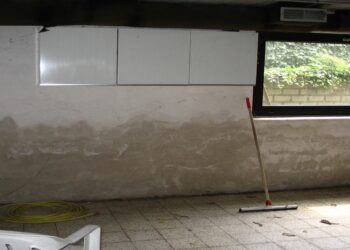Functional requirements
Functional requirements constructions

The requirements set for a construction depend on the functional use to which the building belongs. The type of functional use determines which requirements have to be applied. According to the definition “user function” means: the parts of a construction that have the same use and form a user unit together.
A building is understood to mean any construction that has a space that is accessible for people, partially of completely covered and enclosed by walls.
It often occurs that a building has different kinds or similar user functions. Think about a mall (shopping function) with above houses (living function) or an office (office function) with a break room (meeting functions), a storage space (industrial function) and a gym (sports function).
Constuctions, building parts and spaces that are part of the user functions have to meet all the requirements that are set for that user function. When different requirements are set for the same subject, always the thoughest requirement has to be met.
Based on the equivalence regulations is is permitted to suggest another solution to which the functional requirement is met in a similar way to preserve the normal use of the concerning building part.
The formulated requirements are subcathegorized in requirements regarding safety, health, usability and energy efficiency.
The requirements in these four categories have the following background:
- Safety: the prevention or limitation of harmfull or vexatious consequenses for the users of the construction or third parties.
- Health: the prevention or limitation of harmfull or vexatious consequenses for the users of the construction or third parties.
- Usability: making it possible to carry out the activities characteristic to the construction.
- Energy efficiency: contributing to the economical use of energy in the construction.
A performance requirement is derived from the functional requirements and is qualifies as a minimum requirement. For the assessment of the supporting structure in a building are especially the requirements regarding safety and usability of importance.
If the function of one or more rooms change because of a renovation, even indirectly, a functional change has to be requested.
A renovation is a complete or partially change or enlargement of an existing construction. Only an existing construction can be renovated, a new to build constructions cannot. The renovation regulations only apply to the parts of the construction that are actually physically changed and not parts that stay unchanged.
A general requirement with renovation is that the building and the adjacent parts cannot be worse because of the renovation. The minimal quality after a renovation has to be minimally equal to the quality before the renovation.
In general it can be said that:
- A bedroom is by definition functional unusable when there is a mold colonie present of more than 0,25m², or if there is a toxic kind of class A present. Harmful or vexatious health damage is per definition unacceptable.
- A cellar is functional unusable if it contains water or if there is no diagonal ventilation present. Everything that is stored will be affected by moisture. A lack of ventilation can create a mold explosion on short term.
- Every building has a minial energy performance requirement. If a third underlaying cause contains a serious restriction of the predetermined energy performance of the concerning building, and 20-30% more energy is needed (eg. by absorbing moisture), than there is a functional defect.
- Cracks and tears, with theoretical stability danger, are per definition unacceptable and nullify the functionality of the construction completely.


